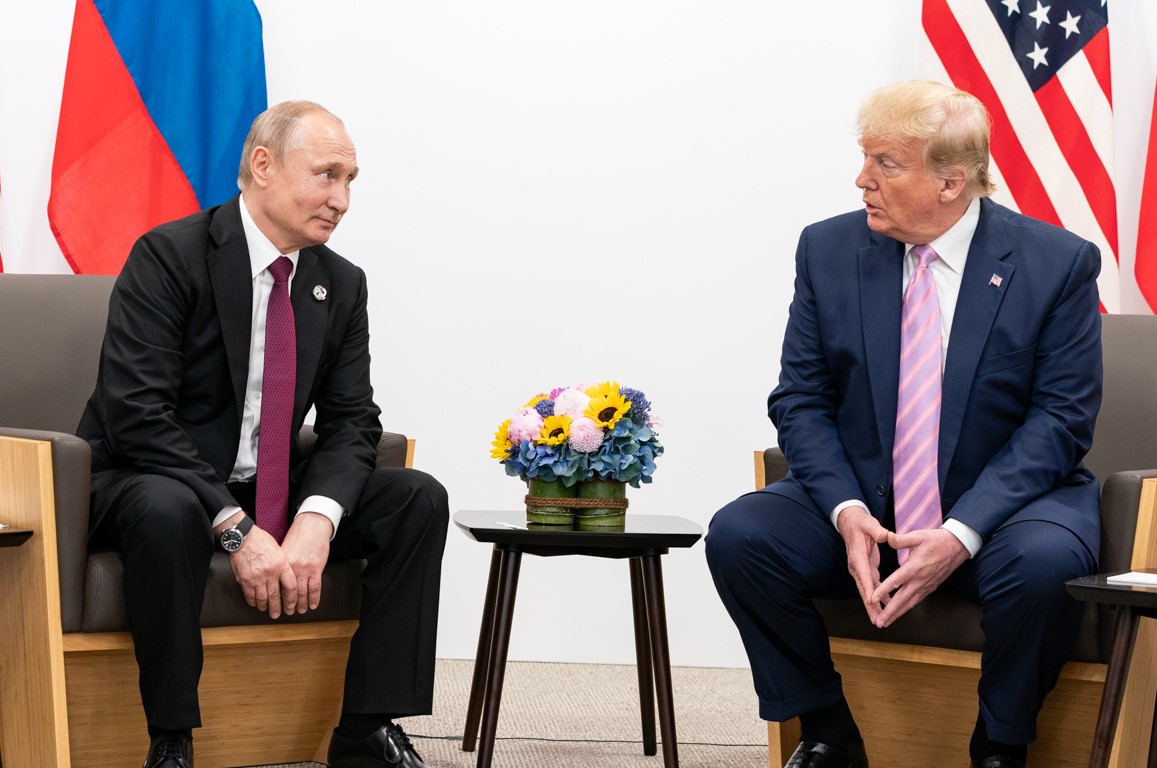
Ukraine: Europe Refused to Think, Now Trump Will Act

In
- EU and strategic partners,
- EU strategy and foreign policy,
- Europe in the World,
- European defence / NATO,
If Trump manages to convince Putin to make a deal on Ukraine (and it remains an “if”), the core of it will probably be: you get to keep what you have, but then you stop trying to get more. Many in Europe have shown pre-emptive outrage at this scenario. But let’s be honest: have we anything better to offer?
*****
Ukraine: Europe Refused to Think, Now Trump Will Act
If Trump manages to convince Putin to make a deal on Ukraine (and it remains an “if”), the core of it will probably be: you get to keep what you have, but then you stop trying to get more. Many in Europe have shown pre-emptive outrage at this scenario. But let’s be honest: have we anything better to offer? The answer, after two and a half years of war, is a disappointing “no”.
Yes, we continue to pretend. The official line of the EU remains that it will support Ukraine for as long as it takes until all of its territory is liberated. How many in our political and military leadership really still believe that, though? Some undoubtedly do – many certainly don’t. In any case, the EU and its Member States never acted as if they believed in complete victory: they only ever gave Ukraine enough weapons (or just not enough) to hold the line, not to go on the offensive.
The problem is that, amazingly, there is no strategic debate about Ukraine. It is, in fact, forbidden. Any suggestion that if, in reality, we have come to the conclusion that Ukraine will not be able to liberate all of the occupied territories, alternative, sub-optimal but feasible scenarios ought to be debated, is still seen as defeatist. In the absence of strategy, we just hope that one day Putin will give up. Which he won’t, because our half-heartedness is precisely what convinces him that he may yet win.
Now it’s too late to have this debate. Trump has been elected and he will take the initiative. By refusing to do strategy when it could, Europe has forced itself into reactive mode. If Trump and Putin want to make a deal, there is nothing Europe can do to prevent it. Europe’s military production is finally increasing, but we are still far from able to supply Ukraine by ourselves. Without American support, Ukraine will soon run out of means to continue the war.
What we can and must do very urgently, however, is to help Ukraine ensure that it doesn’t lose even more territory before Trump’s inauguration. For indeed, if Putin assesses that a partnership with Trump promises more benefits than continuing the war, even though militarily Russia has the upper hand, he may well try to improve his territorial position in the coming weeks. Now is the time, therefore, for Europe to send everything that is available to Ukraine. Even if that entails denuding some of our own units of equipment: at this point, the Ukrainian armed forces need weapons much more than we do.
It is probably also in this light that Biden’s decision to allow Ukraine to use American long-range missiles in the Kursk area must be seen. Though at this stage, it seems like desperation more than a deliberate strategy.
Europe, for its part, must finally decide on its future strategy. Ukraine cannot survive without a security guarantee. A ceasefire or peace treaty without it, means making it dependent on Russia’s goodwill, and we have seen what that is worth. We must make clear to Russia that a third invasion means that it automatically will be at war with us. The most effective way of doing that is by taking Ukraine into NATO.
But what if, as part of his deal with Putin, Trump were to block Ukraine’s access into NATO? The European Allies cannot by-pass an American veto. In that case, a number of European states must provide a security guarantee, without US backing, and make that hard by deploying their troops in Ukraine, along the line of control. This may seem far-fetched, but actually, it is clear that even if Trump does allow Ukraine into NATO, he expects the European Allies to provide the forward presence in the country – he will likely not deploy American troops in Ukraine.
This is how Europe can yet demonstrate its determination, therefore. If a Trump-Putin deal emerges, whatever it is: give a security guarantee to Ukraine and deploy in the country, even if Ukraine does not join NATO. Mustering the courage to do that might just convince Trump, and indeed many other Americans, that European Allies are still worth having, and defending.
In late October, Sven Biscop had the chance, thanks to the Chief of the Belgian Army, to visit the Belgian troops deployed in Romania. For Belgium too, the next step should be: prepare to move them into Ukraine.
This article was subsequently published in Dutch in De Morgen.
(Photo credit: Wikimedia Commons – The White House)